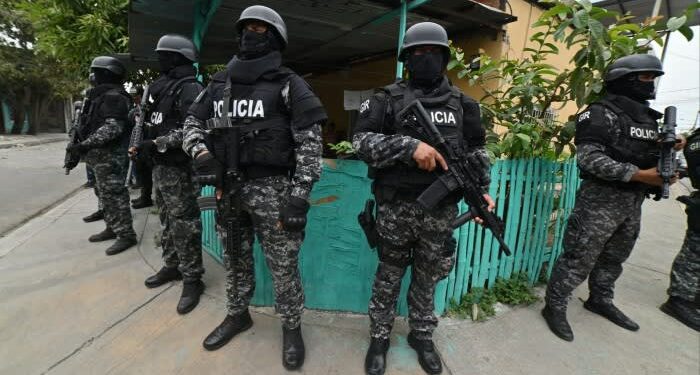Roula Khalaf, Editor of the FT, selects her favourite stories in this weekly newsletter.
The writer is fellow for Latin American studies at the Council on Foreign Relations
Latin America is learning the hard way. Organised crime in the region has been bad since the 1980s; but тАЬreorganised crimeтАЭ is proving far worse.
EcuadorтАЩs gang war meltdown; Mexican mafiasтАЩ colonisation of avocado farms; hitmen prowling the once peaceful streets of Chile.┬аThese are a few recent developments that have made organised crime the unavoidable question of the moment in Latin America.
But these are just the symptoms. The underlying disease: a reorganisation of the regionтАЩs criminal economies, now over a decade in the making. One that is testing democracyтАЩs capacity to respond тАФ and survive.┬а
Three market disruptions jump-started reorganisation in the 2010s. First, cocaine production nearly tripled from 2014 to 2022, as coca eradication efforts in Colombia, Peru and Bolivia stalled and cultivation expanded. Meanwhile, demand for cocaine, long dominated by the US, became more global, spreading to Europe, Africa and the Asia-Pacific.┬а
This had two major consequences: a rewiring of drug trafficking routes and huge windfalls. BrazilтАЩs crime syndicate First Capital Command (PCC) made an estimated $40mn just over a decade ago. Now, since building a transcontinental pipeline to supply increased demand, it makes north of $1bn annually from cocaine alone.
Second, soaring gold prices triggered a criminal gold rush. Organised crime groups took over areas where wildcat gold miners operated, equipping and taxing them, and enabling a boom in output. In 2022, Latin AmericaтАЩs illegal mines accounted for over 11 per cent of global gold production (up from 6 per cent a decade earlier), out-earning cocaine in Colombia and Peru.
Last, during the 2010s, millions of Latin Americans (Venezuelans in particular) fled the dismal conditions created by mafias and mafia states. But these very crime groups made their flight into an industry, systematically taxing coyotes that ferry migrants and refugees (as well as kidnapping and ransoming migrants passing through Mexico), and reaping billions in profit annually.
Barring any sudden and unlikely ebbs in demand for the regionтАЩs illicit goods and services, reorganised crime is here to stay. And everyone should be worried, including Europe and the US.┬а
Reorganised crime threatens democracy тАФ no small thing, given that Latin America remains the most democratic region in the global south. While mafias donтАЩt seek to overthrow the government, they seed тАЬparallel powersтАЭ тАФ networks of corrupt politicians, judicial officials, and bureaucrats тАФ that disable the stateтАЩs law enforcement capacities. Such powers are now surfacing in once unaffected countries and consolidating elsewhere, undermining democracy in Mexico, Honduras and Peru.
Latin AmericaтАЩs democracies lack a blueprint for combating transnational crime. While some see El Salvador President Nayib BukeleтАЩs anti-gang crackdown as a model, this is a deceptive siren song тАФ El SalvadorтАЩs mafias were poorer and weaker than those elsewhere, and the country is now an authoritarian police state.
The difficult truth: reorganised crime is in all likelihood too global a phenomenon for any one country alone to make an appreciable dent. The US and Europe should quit relegating Latin America to the back burner and prioritise partnering with regional governments to reduce the profitability and power of reorganised crime: consider the record number of fentanyl deaths, the overwhelmed US immigration system and the consequent nativist backlash.
The biggest risk is assuming that the cost of organised crime in Latin America can be contained. Left to its own devices, and subject to pure market forces, crime will keep innovating. And it will keep reorganising.┬а
Source link : http://www.bing.com/news/apiclick.aspx?ref=FexRss&aid=&tid=671690a8240444e9b42fcb661beb5250&url=https%3A%2F%2Fwww.ft.com%2Fcontent%2Fbd99f025-94eb-49e5-96fe-e07b55698672&c=11256400836238651772&mkt=en-us
Author :
Publish date : 2024-10-21 05:43:00
Copyright for syndicated content belongs to the linked Source.












